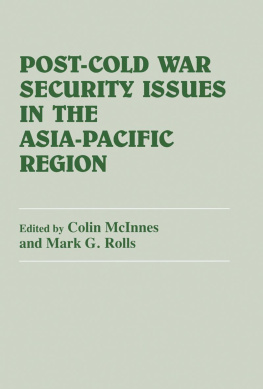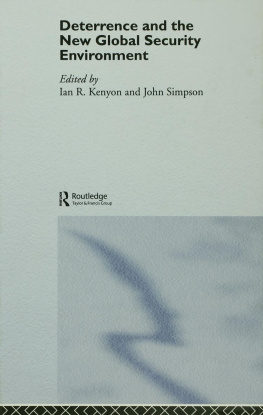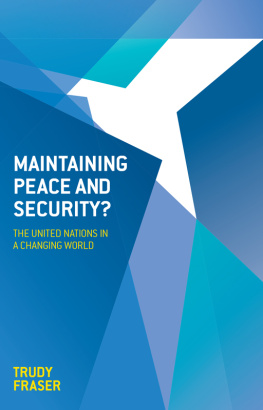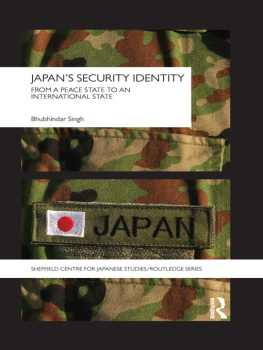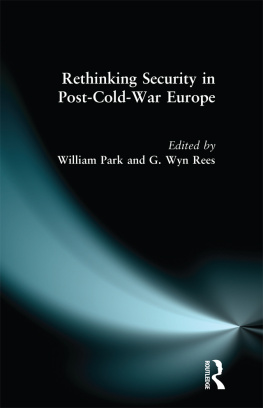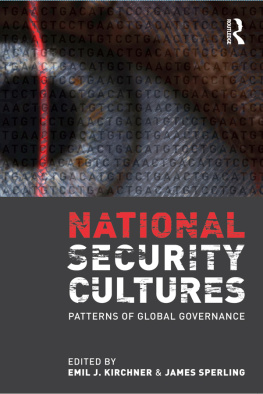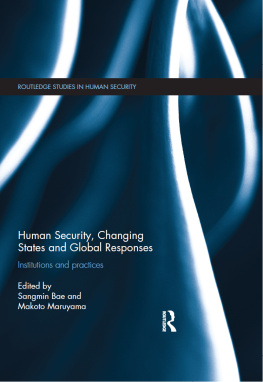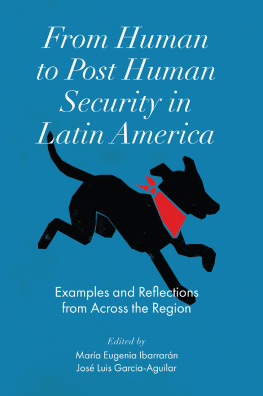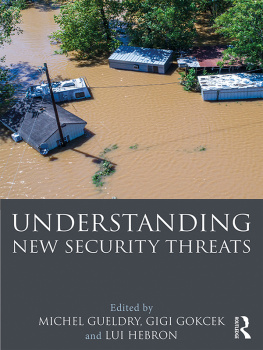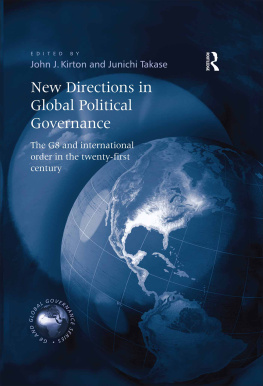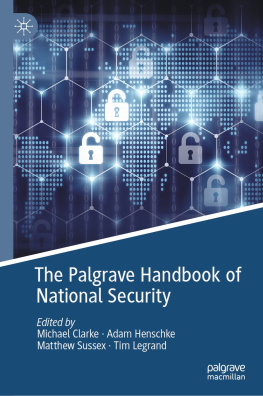INTERNATIONAL SECURITY IN A GLOBAL AGE
International Security in a Global Age
Securing the Twenty-first Century
edited by
CLIVE JONES
University of Leeds
and
CAROLINE KENNEDY-PIPE
University of Durham
First published in 2000 by
FRANK CASS PUBLISHERS
This edition published 2013 by Routledge
2 Park Square, Milton Park, Abingdon, Oxon OX14 4RN
711 Third Avenue, New York, NY 10017
Routledge is an imprint of the Taylor & Francis Group, an informa business
Copyright of collection 2000 Frank Cass & Co. Ltd
Copyright of chapters 2000 contributors
British Library Cataloguing in Publication Data
International security in a global age: securing the twenty-first century
1. Security, International
I. Jones, Clive, 1965- II. Kennedy-Pipe, Caroline, 1961327.1'7
ISBN 0-7146-5061-7 (cloth)
ISBN 0-7146-8111-3 (paper)
Library of Congress Cataloging-in-Publication Data
International security in a global age: securing the twenty-first century / edited by Clive Jones and Caroline Kennedy-Pipe.
p. cm.
Includes bibliographical references and index.
ISBN 0-7146-5061-7 (cloth) ISBN 0-7146-8111-3 (paper)
1. Security, International. 2. Globalization. I. Jones, Clive, 1965 II. Kennedy-Pipe, Caroline, 1961
JZ5588 .I579 2000
327.172-dc21
00-043218
All rights reserved. No part of this publication may be reproduced, stored in or introduced into a retrieval system or transmitted in any form or by any means, electronic, mechanical, photocopying, recording or otherwise, without the prior written permission of the publisher of this book.
Typeset by Vitaset, Paddock Wood, Kent
Alan Collins is a lecturer in the Department of Politics at the University of Wales, Swansea, where he is completing a project on security dilemmas on South-East Asia, sponsored by a post-doctoral fellowship from the British Academy. He received his PhD from the Department of International Politics, University of Wales, Aberystwyth and is author of The Security Dilemma and the End of the Cold War (Keele University Press, 1997).
Tamara Duffey is a graduate in psychology from the University of California, Los Angeles, and was awarded both her MA and PhD in peace studies from Bradford University. She is currently a research fellow in that department working on training issues in conflict resolution and cultural awareness for military and civilian peace-keepers.
Hugh C. Dyer is a graduate of the Universities of Victoria and Dalhousie in Canada and received a PhD in international relations theory from the London School of Economics. He is at present senior lecturer in the Institute for Political and International Studies where he specializes in the international politics of the environment and international relations theory. Among his publications are Moral Order/World Order (London: Macmillan, 1997) and, coedited with Leon Mangasarian, The Study of International Relations: The State of the Art (London: Macmillan, 1988).
Clive Jones is a graduate of Teesside University and the University of East Anglia. He received his PhD from the University of Wales, Aberystwyth. He is currently a senior lecturer in the Institute of Politics and International Studies at Leeds University, where he specializes in the politics and history of the modern Middle East. He is assistant editor of the journal Civil Wars and his publications include Soviet Jewish Aliyah 198992 (Frank Cass, 1996).
Caroline Kennedy-Pipe is Reader in Politics at the University of Durham and editor of the journal Civil Wars. She holds a BA in history, MS Econ. in strategic studies and a D.Phil, in international relations. She is author of Stalins Cold War (Manchester: Manchester University Press, 1995), The Origins of the Present Troubles in Northern Ireland (Harlow: Longman, 1997) and Russia and the World (London: Edward Arnold, 1998).
Jason G. Ralph is a lecturer in the Institute for Political and International Studies at Leeds University, where he teaches and researches international security issues. He recently completed his PhD at Kings College London, where he was a recipient of a full grant from the Economic and Social Research Council. He has published a number of articles on US foreign policy and is currently writing a book on US security policy after the Cold War.
Deborah Sanders is a lecturer in defence studies at the Joint Services Command and Staff College in Bracknell, where she specializes in the politics and strategy of the former Soviet Union. Her publications include Security Co-operation between Russia and Ukraine in the Post-Soviet Era (London: Macmillan, 1999).
Edward M. Spiers is Professor of Strategic Studies in the School of History at Leeds University. He was educated at Edinburgh University where he received his PhD. He has written widely on military history and strategy, including Haldane: An Army Reformer; Army and Society, 18151914 (Harlow: Longman 1980); Radical General: Sir George de Lacy Evans (Manchester: Manchester University Press, 1983); Chemical Weaponry: A Continuing Challenge (London: Macmillan, 1989); The Late Victorian Army, 18681914 (Manchester: Manchester University Press, 1992); Chemical and Biological Weapons: A Study of Proliferation (London: Macmillan, 1994). He has recently edited Sudan: The Reconquest Reappraised (London: Frank Cass 1999).
Neil Winn is lecturer in European Studies, Centre for European Studies at Leeds University. He was educated at Plymouth and Hull Universities before receiving his PhD from the European University Institute, Florence. His publications include European Crisis Management in the 1980s (Dartmouth: Aldershot, 1996).
Of the making of books about international security there would appear to be no end. Yet, as irritating as it might seem to some, there is perhaps even more need for such books now as at the height of the Cold War. Why? Because as I read it at least, we are entering a period where the convenient signposts that have largely dominated the thinking and practice of conflict for the last three hundred years are becoming less and less reliable as guides.
There are, of course, many reasons for this, and it is neither my intention nor my task to elaborate them here. Some of the major themes are in any case discussed in Caroline Kennedy-Pipes chapter, From Cold Wars to New Wars. None the less, it is worth emphasizing that rapidly changing landscapes usually require new maps, continually updated, and thus the variety of contemporary approaches to and discussions of what we might refer to as the frameworks of conflict are to be welcomed as providing us with the outlines of these maps.
This book, which I had the good fortune to read in manuscript, is a very welcome addition to the new map-making task. It offers a very broad and thoughtful reading of the way in which some of the major contemporary players in the security business conceive of their roles, dangers and opportunities as well as some very useful discussions of certain themes that are widely perceived as central to the new frameworks.


